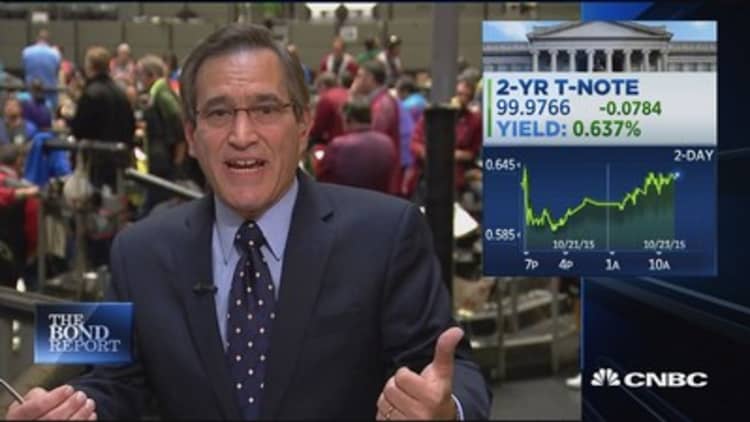The dollar fell from a 2-1/2-month high versus a basket of major currencies on Monday on lower U.S. bond yields and a drop in U.S. new home sales in September that revived concerns about the U.S. economy before a two-day Federal Reserve policy meeting.
The dollar index just booked its best week since mid-May as investor sentiment improved following China's fifth rate cut this year and the European Central Bank's signal that it was ready to ramp up its bond purchase program.
The dollar slipped with weaker oil and global stock prices on Monday as traders await possible clues from the U.S. central bank on the timing of an interest rate increase, analysts said.
The Federal Open Market Committee, the Fed's policy-setting group, is widely expected to leave rates near zero on Wednesday.

"They may keep the door open for a hike in December, but even that's unlikely," said Charles St-Arnaud, currency strategist at Nomura Securities International in New York.
Read MoreFed could be a snooze, but these reports will be big
The futures market implied traders see a 7 percent chance of a rate hike on Wednesday and 36 percent probability of a rate increase in December, according to the CME FedWatch program.
The dollar index was last down 0.29 percent at 96.84 after it reached 97.201 on Friday, its highest since Aug. 12.
The greenback was down 0.37 percent at 121.02 , while the euro was up 0.3 percent at $1.1049.
Fed policy-makers have been worried about weakening global growth and a still relatively strong dollar disrupting U.S. economic growth.
On Monday, the government said new home sales fell to near a one-year low in September after two straight months of gains. The 11.5 percent drop was far steeper than economists polled by Reuters had projected.
The disappointing housing data put downward pressure on U.S. Treasury yields as well as the dollar.
The benchmark 10-year U.S. Treasury note yield was 2 basis points lower at 2.064 percent after hitting two-week high on Friday.
Sweden's Riksbank, the Reserve Bank of New Zealand and the Bank of Japan, which all hold policy meetings this week, will be closely watched.
"Globally, the focus right now is on central banks and monetary policy as a whole," said Shinichiro Kadota, chief Japan FX strategist at Barclays in Tokyo.
The and New Zealand dollars have benefited from the improved investor appetite, each gaining about half a percent on the day against their U.S. counterpart at $0.7257 and $0.6789, respectively.

